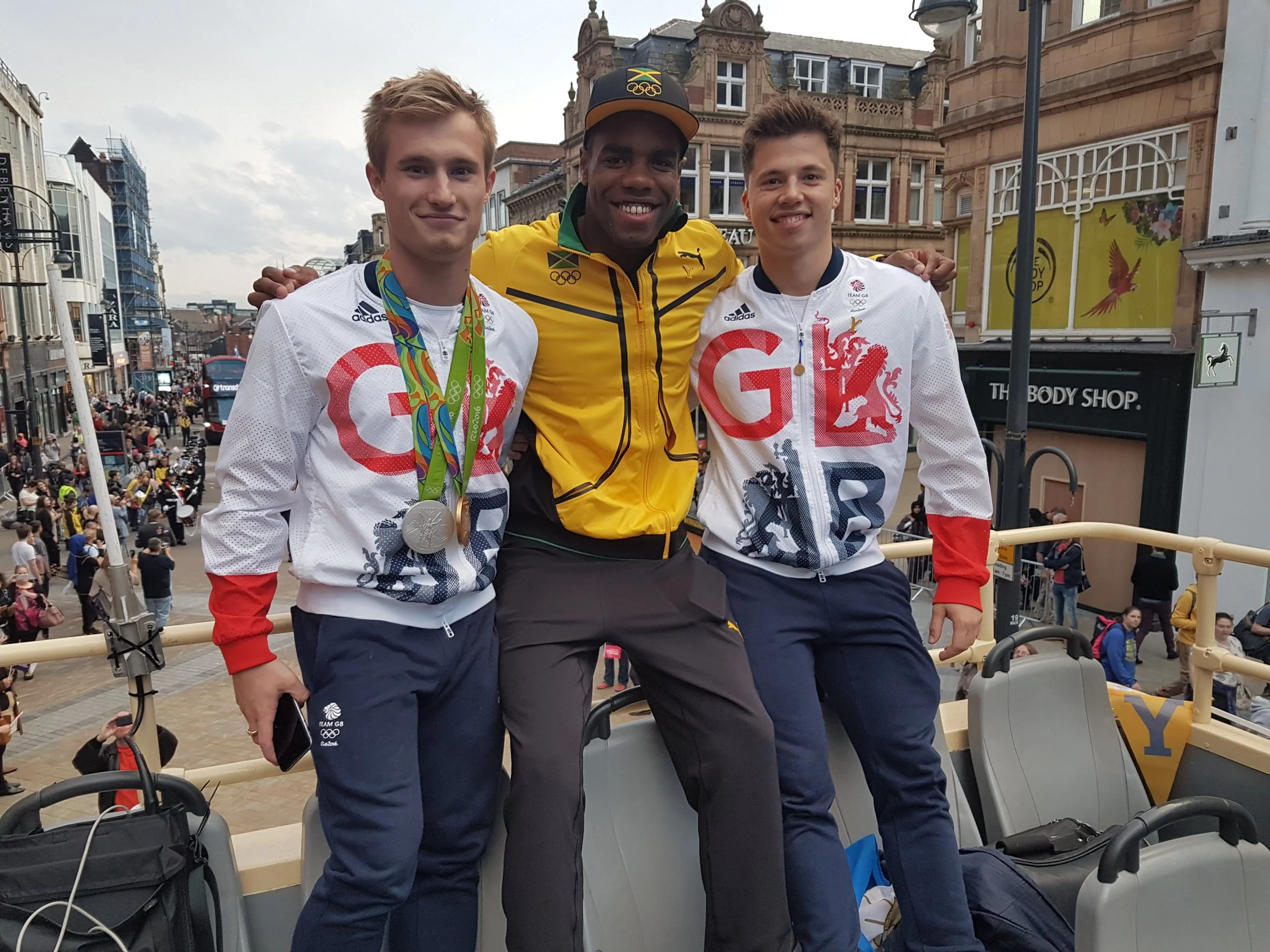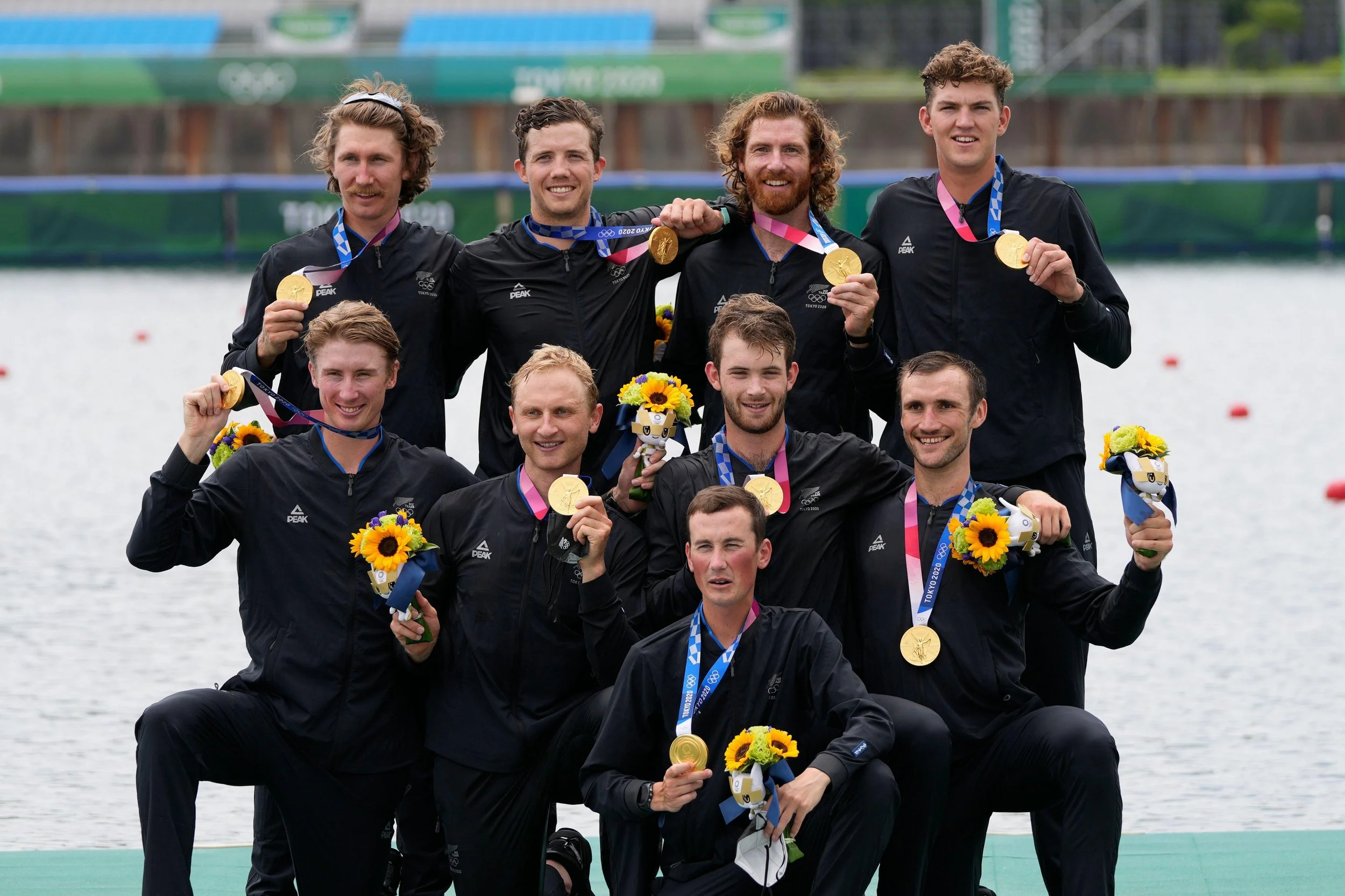More than medals
British springboard diver Freddie Woodward represented Team GB at the Rio 2016 Olympic Games before retiring from competition two years later
Freddie Woodward found his spark for diving at junior school – a talent that took him to the podium at the Commonwealth Games, the European Championships, and the British Championships.
In 2016, he represented Team GB at the Rio Olympics, performing on sport’s biggest stage of all. But the road there wasn’t smooth. Since retiring in 2018 at the age of 23, he’s come to realise that the hardest parts of his path were rarely physical.
Speaking exclusively to The 1v1 Project, Freddie shares the journey behind the medals – and the mental battles that mattered even more.
From the moment I was talent-spotted at my junior school, there was something about diving that felt right to me.
It wasn’t a deep philosophical decision. I was young, it sounded cool, and I wanted to get through the test and be chosen. It was just like that, and I loved it.
Looking back, those days feel both incredibly close and impossibly distant.
The journey from that enthusiastic kid to an Olympian was filled with more mental hurdles than physical ones – challenges it’s taken me a long time to fully understand.
“There was something about diving that felt right to me”
The “good enough” group
As a young diver, I had the experience of training and competing alongside exceptional talents like Tom Daley and Jack Laugher. It was a constant learning environment.
But instead of seeing that as an advantage – an opportunity to observe how the best operated – I struggled to frame it in the right way.
I always had this feeling that I was clinging to the bottom of the “good enough” group. The group that might make it to the Olympics.
When I did make the Olympic team for Rio, I performed well, but not to the level I had hoped.
On my last dive, I went from 16th or 17th to 19th, sacrificing the semi-final by one place. By no means did I embarrass myself, but I could have been sharper.
Something did shift in me, just slightly. It didn’t erase the doubt, but I remember thinking, ‘You know what? I’ve had a taste for it now. I know I can do it.’
Team GB’s diving squad for Rio 2016 included (left to right) Chris Mears, Jack Laugher, Freddie Woodward, and Tom Daley
Pushing for power
After Rio, I started to think more practically about what I could do to reach the next level.
Physically, I felt the biggest difference between the top six and me was strength. I’m a bit longer and slimmer than the typical diver. Some are very small and compact, others are incredibly powerful.
I decided I needed more raw power.
I pushed really, really hard in the gym – and ended up blowing out the tendons in my knees.
I was still able to compete at some events, but I hadn’t made the gains I wanted to.
Everyone around me was improving, and I realised my chances of making the Olympic team were shrinking.
“I always had this feeling that I was clinging to the bottom of the “good enough” group”
Stepping away
It felt like the right time to step away from diving in 2018.
Being a professional athlete can make you feel one-dimensional, and I knew there were other things I wanted to experience in life. I was craving a new routine.
But the Olympic badge was a part of who I was, and every person who found out I competed in Rio would ask the same question: “Did you medal?” That hasn’t changed to this day.
When I said no, I’d always get the response of, “Well, it’s still great you were able to go.” No harm is meant, of course, but that conversation happening over and over really bothered me.
I’m proud of what I achieved, and the group I shared my journey with.
I always had this feeling of over-achievement because it was never a given that I’d make it to the Olympics.
But that question made me want to separate myself from my diving identity and the lessons I’d learned along the way.
Freddie (far right) with fellow Olympic divers Jack Laugher and Yona Knight-Wisdom after the Rio 2016 Olympics
Beyond the status game
I never hated diving, ever. I still love it. I just grew tired of constantly being evaluated against others in a hierarchical way.
While the elation when I performed well was incomparable, there was always relief when the stress of competition was over.
Sport is a status game. On the surface, you’re either the winner or you’re not – that’s why we so often focus on the medals over the journey itself.
I’ve come to understand that you don’t always need to be playing those games.
If you think about business, success doesn’t have to come at the expense of others. You can create environments where everyone can win to some degree.
“Sport is a status game. On the surface, you’re either the winner or you’re not – that’s why we so often focus on the medals over the journey itself”
Lessons to share
Choosing to take space has allowed me to clearly see just how much I accomplished in diving. Despite the self-doubt I carried, I found a way to push through.
If I take the worst-case scenario – that I truly was weak and lacking in talent – I still went to the Olympics. I know that if you work hard, set goals, and continue to show up, you can achieve incredible things.
I’m building a future where I can take this same attitude and apply it to new ambitions, only now with a different, more collaborative mindset.
It’s taken years for me to accept the value in my journey. Today, I believe more of my purpose is to speak to the athletes in the position I was once in.
The kids who never feel special yet keep pushing for the top.
The lessons I once tried so hard to run from, I’m now proud to pass on.
Freddie Woodward
FEATURED STORIES









